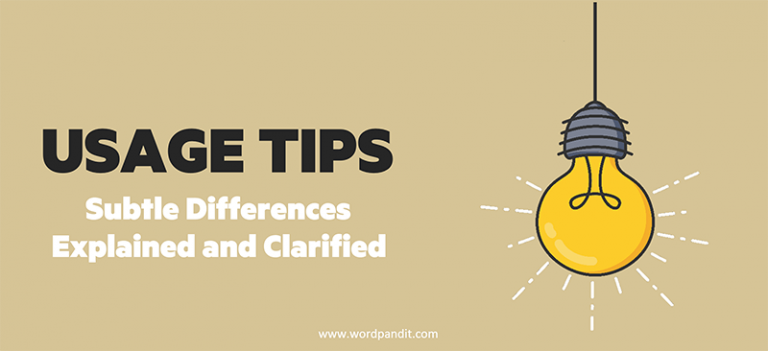Clarifying Confusing Word Pairs: Expand vs. Expend ✨📖
Introduction
Ever found yourself mixing up “expand” and “expend”? 🤔 You’re not alone! These two words look similar, but they have completely different meanings. Knowing when to use each can make a big difference in your communication. Picture this: You tell your friend you’re planning to “expend your business.” 😅 It sounds pretty intense, right? Let’s clear up this confusion once and for all. 💡 Understanding these two words will help you communicate more clearly and effectively, avoiding any awkward or funny situations that might arise from using them incorrectly. So let’s dive in and explore these words in detail, and by the end of this, you’ll have a solid understanding of when and how to use them appropriately. 🌟
Detailed Explanation of Each Word
Expand 📈
- Definition: To increase in size, volume, or scope.
- Pronunciation: /ɪkˈspænd/
- Etymology: Derived from the Latin “expandere,” meaning “to spread out.” The word evokes growth and enlargement, much like how a balloon 🎈 expands when you blow air into it. When you think of “expand,” think of something getting bigger, broader, or more extensive, whether it’s physical space, knowledge, or opportunities.
- Usage Examples: “The company plans to expand into new markets.” “She expanded her knowledge by reading extensively.” Whether it’s expanding your business operations, expanding your social circle, or expanding your mind, this word always implies growth, development, and going beyond current limits.
- Synonyms & Antonyms: Synonyms: enlarge, grow, broaden, amplify, extend. Antonyms: contract, shrink, reduce, diminish, compress.
Expend 💸
- Definition: To use up or spend resources, such as time, money, or energy.
- Pronunciation: /ɪkˈspɛnd/
- Etymology: Comes from the Latin “expendere,” which means “to weigh out” or “pay.” It refers to the act of spending or consuming something. The word carries a sense of something being finite—whether it’s money, effort, or time, once expended, it’s gone.
- Usage Examples: “They expended a lot of effort on this project.” “You shouldn’t expend all your savings on a single purchase.” When you expend something, it’s about using up a resource to achieve a particular goal, like energy on a workout or money on an important investment.
- Synonyms & Antonyms: Synonyms: spend, consume, exhaust, deplete, disburse. Antonyms: conserve, save, hoard, accumulate, reserve.
Comparison and Contrast
Expand is all about growth and making something bigger. Think of expanding a business, expanding your horizons 🌅, or expanding your living space. It involves increasing or stretching beyond current limits. The word carries a positive connotation of improvement, growth, or becoming better, whether personally, professionally, or in terms of physical space. Expansion is typically associated with opportunities and positive developments, like expanding skills or expanding a successful brand.
Expend, on the other hand, is about using something up, often resources like money, energy, or time. You expend effort, expend funds 💵, or expend energy. It implies a finite resource being consumed. Unlike “expand,” which is generally positive, “expend” can sometimes imply a sense of depletion or sacrifice—you’re using up what you have, and there’s a focus on the cost or effort involved. It’s often used in a context where careful management is required, so you don’t run out of something valuable.
Contextual Usage
“To expand our business, we must expend time and energy wisely.” ⚖️ Expanding the business means growing, and to achieve this growth, resources must be expended strategically.
Notice how “expand” implies growth, while “expend” is all about using resources. The difference lies in the nature of the action: one is about gaining, and the other is about spending or using up what you have.
Mnemonic Device
To remember the difference, think: “Expand is to grow (like expanding a balloon 🎈), while expend is to spend (like money 💰).” If it helps, “expand” and “grow” both have an “a,” and “expend” and “spend” both have an “e.” You could also think of “expend” as involving expenditure—both words relate to spending, which can be a helpful association.
Related Words
- Extend vs. Expand 🔄: While “expand” involves getting bigger or broader, “extend” is more about lengthening or stretching something that already exists.
- Expenditure vs. Expense 💲: Both are related to “expend,” but “expenditure” refers to the action of spending, while “expense” is something that costs money.
Conclusion
Mastering the difference between “expand” and “expend” can help you avoid awkward mix-ups and make your writing more precise. ✍️ Just remember—expand means to grow, and expend means to use up. You’ve got this! 👍 By understanding these words, you’ll not only enhance your vocabulary but also improve your ability to express ideas clearly and effectively. Whether you’re talking about growing a business or wisely using your resources, knowing when to use “expand” versus “expend” will make all the difference in how well you communicate. Keep practicing, and soon, you’ll never confuse these two words again! 🌟💪
Test Your Knowledge: Expand vs. Expend Quiz 📖✨
1. The team wants to ___ their operations to cover more cities. 🏙️🌍
2. We had to ___ significant effort to meet the deadline. ⏳⚡
3. Expand means to use up resources. ❌
4. Which word is a synonym for “expand”? 🌱🌟
5. The company decided to ___ its market reach this year. 🌍📊
6. Which word would most likely be used in the sentence: ‘The project required us to ___ all available funds’? 💰💸
7. To ___ their reach, the company had to ___ a lot of resources. 💪💰
8. Which word has its origins in Latin meaning “to spread out”? 📜📖
9. The word ‘expend’ can be used to describe making something bigger. ❌
10. The CEO wanted to ___ their market influence but warned not to ___ all their funds. 💼💸













